Reflections from Rare Care Intern Megan Rodenbeck
While clinging to an exposed ledge looking for Tisch’s saxifrage (Micranthes tischii), a very charming saxifrage, I realized the lengths I would go to just to look at plants. I found I had a healthy respect for heights, but was able to forget how high up I was when I finally saw its ruffled, waxy leaves tucked into a rock crevice.
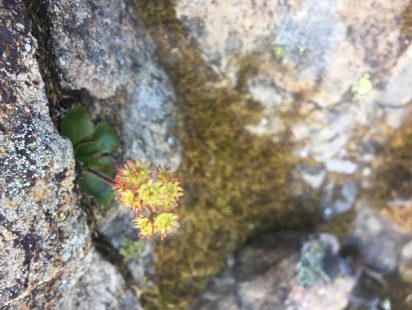
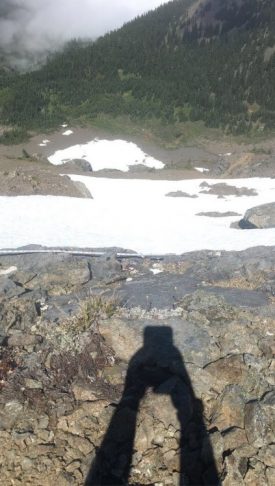
Despite a rocky start, and figuring out how to navigate research during a pandemic, this summer as an intern for the Rare Care program was one of my most rewarding field experiences yet. With every challenge this internship presented, I gained invaluable skills, confidence, and knowledge. Throughout the summer we learned how to develop protocol in the field for installing permanent plots, and gained skills in wayfinding, GPS mapping, ArcGIS, field identification, data collection, analysis and management, and protocol and report writing.
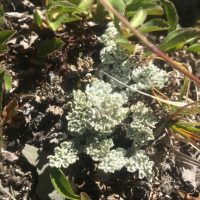
As we worked through initial setbacks, adjusting to new health and safety guidelines and challenging sites, I faced many situations I have never been in before but the importance of this research stayed at the forefront of my thoughts. Our focus this year was to set up permanent monitoring plots at key threatened populations of alpine plants in Olympic and North Cascades National Parks. These plots will be monitored over the years to look at changes in the range and abundance of the plants. They will show if there is a decrease or increase in plant population due to changing climate, soils, rain, exposure, competition, and other factors. The importance of establishing long term monitoring programs is to show how populations change over time and observe patterns for why the change may be happening.
This new field opportunity let me learn new skills and a new hobby. I have always loved the outdoors and had a few years of field experience prior to this, but I had never backpacked before. This summer I got to go on my first backpacking trips in the Olympics and Northern Cascades for work. Even though we had to carry all of our own individual gear, around 45 pounds, the trips were amazing. It was a great reward to see the views and wildlife and to talk with people about our work along the way. I felt so lucky to be able to work outdoors at a time when most people are working from home.
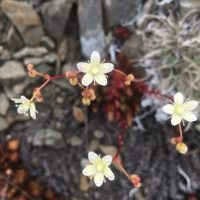
Along with this internship, I was enrolled in a botanical class for a Certificate in Natural Science Illustration through the University of Washington. It was difficult to balance at times but the exposure to rare plants enhanced my experience in the class and gave me so many new subjects to draw! The times we spent keying plants were some of our most triumphant and exciting moments. It was a hands-on experience that I can directly apply in the future as I pursue a Master’s degree in Botany with a focus on pollination ecology.
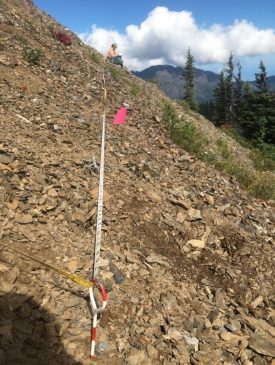
A large part of successful field work is good communication between field partners. I feel so lucky to have worked with Marina this summer. Despite all the challenges we faced, we met them head on as a team and had a lot of really great laughs along the way. My gratitude for the time Wendy Gibble spent repeating scientific names over and over, mentoring and encouraging us will be life-long.
Of the many things I learned this summer I was proud to became more resilient. I began to think of our team like one of our alpine plant species wedged on steep slopes against sliding rocks, facing wind, rain, heat, and altitude but digging our roots in and persisting in the most unlikely places.